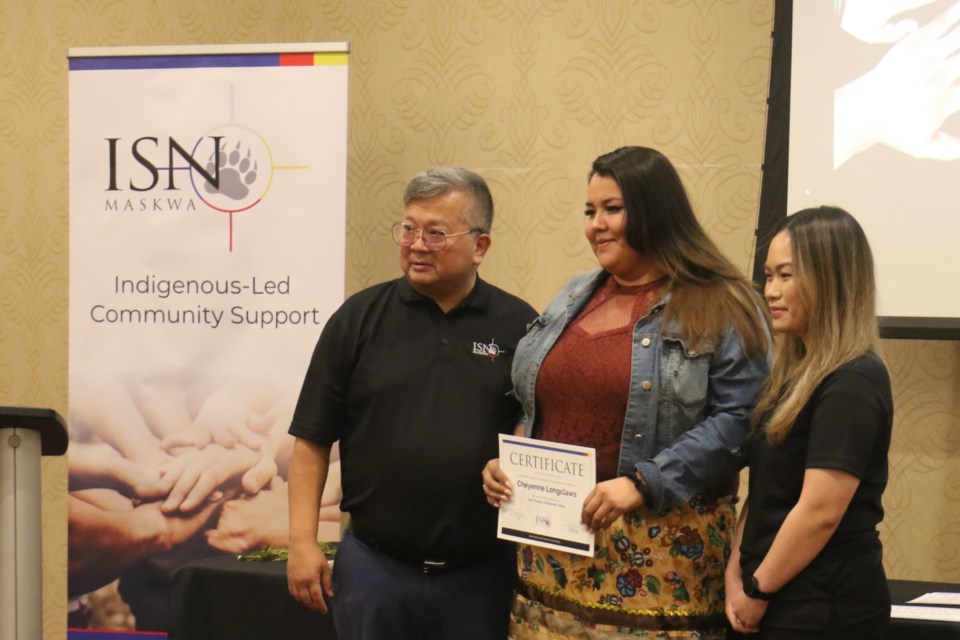ISN Maskwa has been teaching Indigenous Peoples how to respond to disasters and emergencies in First Nations through its Incident Management Training course — and on Thursday, its latest cohort of trainees received certificates for completing it.
Over the past week-and-a-half, the Indigenous-led organization hosted 24 trainees from more than a dozen First Nations from across Ontario and Manitoba in Sault Ste. Marie, where participants learned a wide range of skills in order to better prepare their communities for when disaster strikes.
It’s the second Incident Management Training course provided by the organization; both were made possible through funding from Indigenous Services Canada in partnership with ISN Maskwa, which lists Missanabie Cree First Nation as its majority owner.
“Today we’re celebrating all these wonderful graduates today, including myself, who have taken part in this incredible workshop,” said Missanabie Cree First Nation Deputy Chief Jutta Horn, who received her certificate Thursday for completing the training. “We’re here to gain the skills of emergency management personnel and coordinators to assist our communities and our sister communities in times of crisis and emergencies, and at the same time, the tools that are gained here can also be applied to the everyday events in our own communities.”
Horn said the 11-day course provided students with “tools, processes and procedures” that will enable individuals to be well organized and in “response mode” when helping evacuees.
“The idea is to have Indigenous-led solutions to emergency management,” she said. “A lot of our communities are dealing with annual flooding and fires, and we’d like to be part of First Nations helping our sister nations [so] that we’re able to assist each other and provide for those emergency measures.”
ISN Maskwa Director of Emergency Management Jose Camacho said most of the training happened in a classroom setting and culminated in a mock evacuation exercise on the final day of training Wednesday.
“They were working from a community emergency operations centre, as well as working with an incident command post at a host community that’s been identified as a reception area for evacuees,” he said, describing the mock exercise. “It was a fictitious scenario, but it's a scenario that’s very relevant for what they deal with on an annual basis — they deal with floods, they deal with fires that get evacuated, so we want them to take those skills back to be able to help their communities.”
Cheyenne Longclaws is from Long Plain First Nation in southern Manitoba. She was sent to Sault Ste. Marie to receive the training by her chief, Kyra Wilson, so that her community can implement a similar program in Manitoba to help other smaller communities.
“We have a lot of tornado disasters in our home community, and knowing that there’s smaller reserves who don’t have the resources for that, this would be very helpful,” Longclaws said.
Missanabie Cree First Nation is currently in the process of building its own evacuation centre with the goal of being able to house up to 300 evacuees within its traditional territory, located about 350 kilometres northeast of Sault Ste. Marie.
